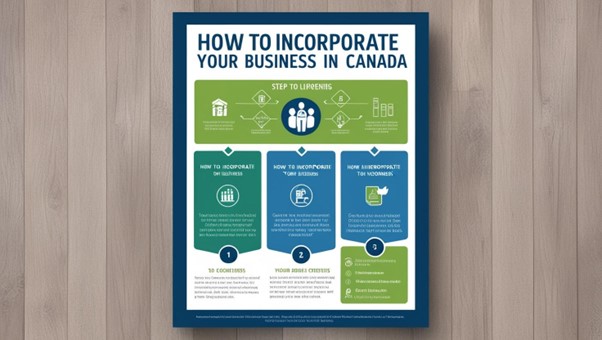THE BENEFITS OF INCORPORATING YOUR BUSINESS FOR TAX PURPOSES
As a business owner in Canada, you’re constantly looking for ways to optimize your operations, increase efficiency, and minimize costs. One strategy to consider is incorporating your business for tax purposes. In this blog, we’ll explore the benefits of incorporation and how it can help you save on taxes. Whether you’re a seasoned entrepreneur or just starting out, this information is crucial for making informed decisions about your business.
What is Business Incorporation?
Business incorporation is the process of registering your business as a separate entity from its owners. This means that your business will be considered a distinct entity for tax purposes, with its own income, expenses, and tax obligations.
Benefits of Incorporating Your Business for Tax Purposes
- Tax Savings: Incorporating your business can help you save on taxes. Corporations are taxed at a lower rate than individuals, and you may be able to take advantage of tax deductions and credits that are only available to corporations.
- Limited Liability: Incorporation provides limited liability protection, which means that your personal assets are protected in case your business is sued or incurs debt.
- Improved Credibility: Incorporating your business can help you establish credibility with customers, suppliers, and partners. It shows that you’re committed to your business and willing to take the necessary steps to establish it as a legitimate entity.
- Flexibility in Ownership and Management: Corporations can have multiple owners (shareholders) and managers (directors and officers), which can provide flexibility in ownership and management structure.
How to Incorporate Your Business in Canada

Incorporating your business in Canada involves several steps, including:
- Choosing a Business Name: Select a unique name for your business that complies with Canadian naming regulations. You can check the availability of your word name on the Canadian corporate names database and the Canadian business registry. If the name is available, you need to register it as a legal name or a trade name.
- Choose Your Business Structure: Your business structure determines your tax and legal obligations. It is vital to choose a business structure that suits your needs from the above-mentioned structures. You also have to make a choice between federal and municipal/provincial incorporation as it defines the jurisdiction of your business operations.
- Preparing Articles of Incorporation: Draft articles of incorporation that outline the structure and purpose of your business. During incorporation, you can choose either the basic or custom incorporation option.
- The basic incorporation option provides pre-determined articles of incorporation (that can be amended), suitable for small private businesses.
- The custom incorporation option allows for customization in articles of incorporation, and choice of business structure and number of directors.
4. Federal Incorporation: If you incorporate in Canada federally, you have:
- The right to operate your business across Canada
- Exclusive rights to use your business name across Canada
5. Provincial/Territorial Incorporation: If you opt for provincial/territorial incorporation, you can operate your business in that jurisdiction. If you want to expand to other provinces or territories, you must register as an extra-provincial/territorial corporation in those jurisdictions. You can find more details here .
6. Filing with the Province: File your articles of incorporation with the province where your business will operate.
7. Obtain Necessary Licenses and Permits: The permits and licenses that you need for conducting business operations in Canada vary with your business location, industry, and nature of your business activities. Likewise, the licenses and permits required can vary across the three levels of government (federal, provincial/territorial, and municipal).
8. Obtaining a Business Number: Register for a business number with the Canada Revenue Agency (CRA). After that, you can obtain these accounts on the Business Registration Online platform with the business number:
- Payroll deductions program account
- Information returns
- Corporation income tax program account
- GST/HST program account
Types Of Business Entities Available
The four major types of business entities you can incorporate in Canada are:
- Sole Proprietorship: As a sole owner of your business, you take full ownership for the benefits and risk arising from business operations. It offers 100% profits, full control in decision making, and low setup costs, but with unlimited liability.
- Partnership: In a partnership setup, there are often two or more owners. It offers the potential for a skill-diverse team and a P&L sharing arrangement with partners. Liability is still unlimited here as it is not legally different from sole proprietorship.
- Corporation: A business corporation has a separate legal existence from its owners, enabling perpetual existence of the business. The liability of owners/shareholders are limited to the extent of capital contribution. This structure facilitates easy access to capital.
- Co-operative: A cooperative is a limited liability structure that is owned and controlled by an association of members in a democratic manner.
Tax Implications of Incorporation

Incorporating your business can have significant tax implications. Some key considerations include:
- Corporate Tax Rates: Corporations are taxed at a lower rate than individuals, with federal tax rates ranging from 9% to 15%.
- Small Business Deduction: Canadian-controlled private corporations (CCPCs) may be eligible for the small business deduction, which can reduce the corporate tax rate to as low as 9%.
- Capital Gains Tax: When you incorporate your business, you may be able to take advantage of the capital gains exemption, which can help you avoid paying taxes on capital gains.
Conclusion
Incorporating your business for tax purposes can provide significant benefits, including tax savings, limited liability, and improved credibility. However, it’s essential to understand the tax implications of incorporation and to seek professional advice from a Canada tax expert or financial advisor in Ontario. By doing so, you can ensure that you’re making the most tax-efficient decisions for your business.
Book a Consultation
If you’re considering incorporating your business or want to learn more about the tax implications of incorporation, book a consultation today with our team of experts. We’ll help you navigate the complexities of Canadian tax law and ensure that you’re making the most tax-efficient decisions for your business.
Contact Us
Phone: (647)643-1095
Email: sjohn@glhaccounting.ca
Address: G.L.H. Accounting Services
105 Hansen Rd N, Brampton, ON L6V 3C9.
Follow Us
Instagram: glhaccounting
LinkedIn: GLHaccounting
By incorporating your business and seeking professional advice, you can minimize your tax liability and maximize your profits. Book a consultation today and take the first step towards optimizing your business’s tax strategy.
About Author
Shanel John is a dedicated Certified Public Accountant (CPA) at G.L.H. Accounting, specializing in Income Tax with 10 years of experience. Based in Brampton, Ontario, Canada, Shanel offers expertise in tax preparation, financial accounting, and advisory services. A certified QBO Pro Advisor, Shanel’s decade-long experience and knowledge make her a trusted figure in the accounting field.

